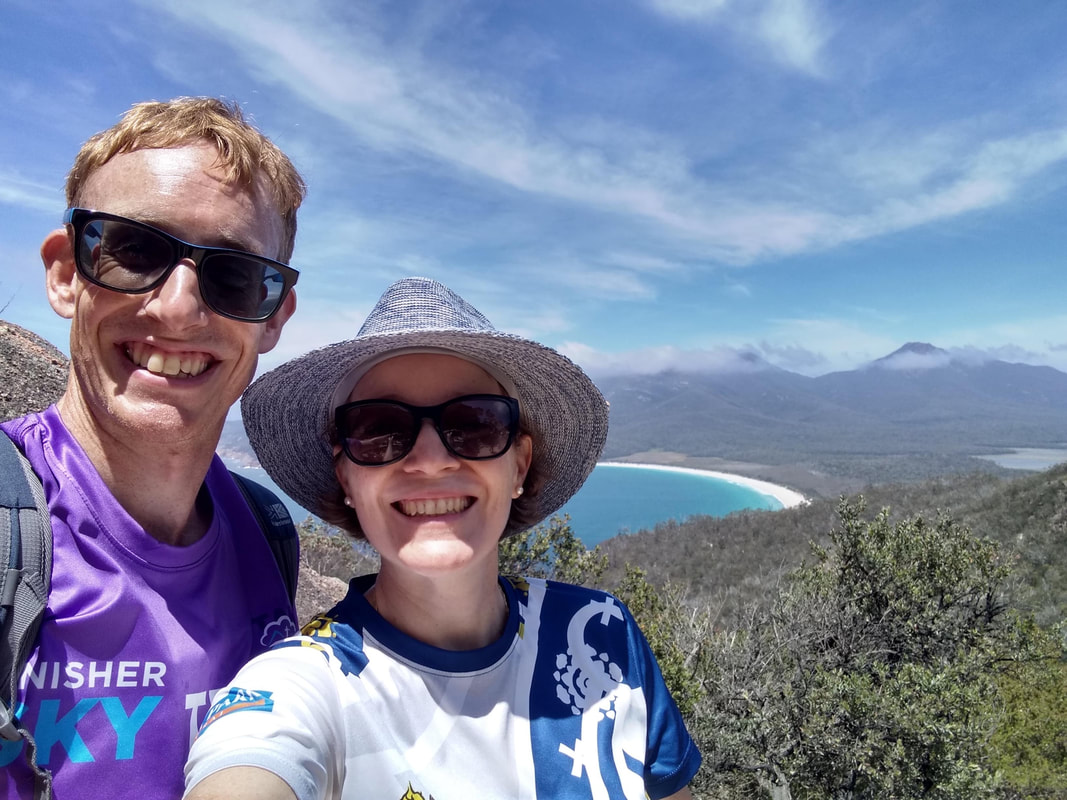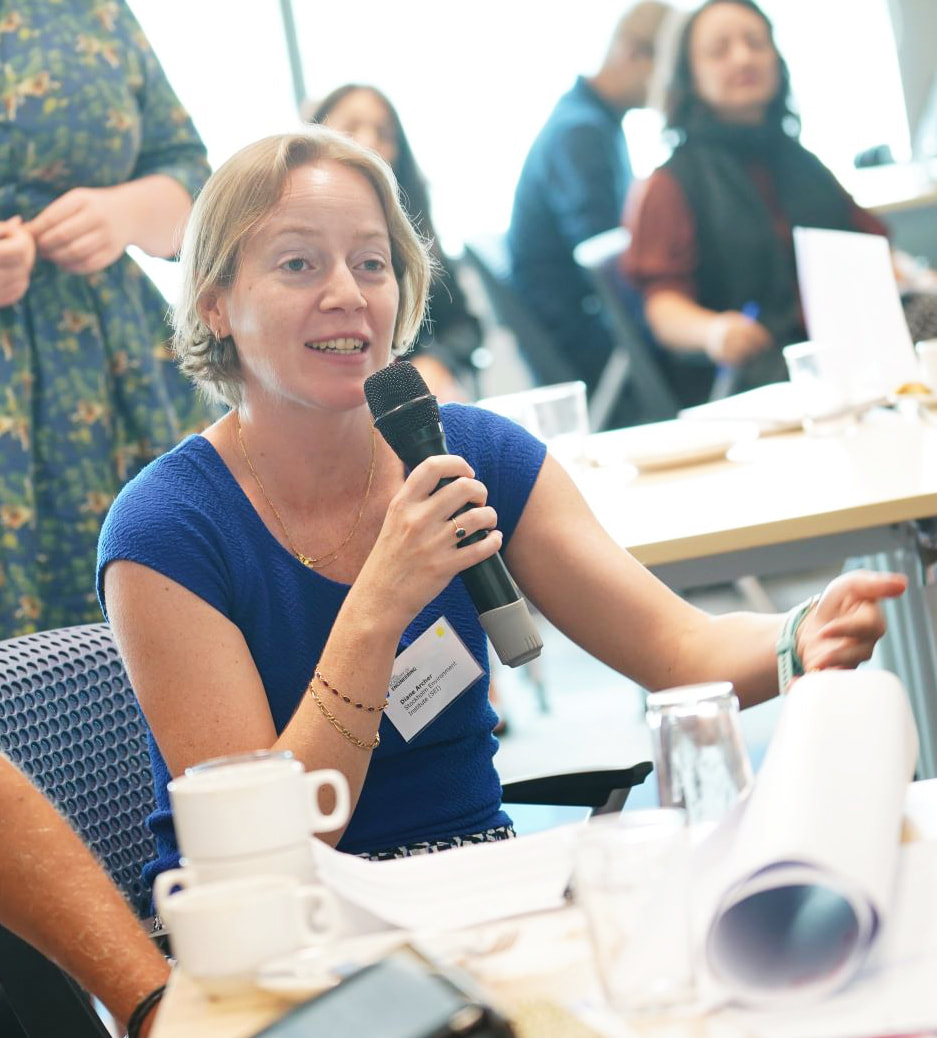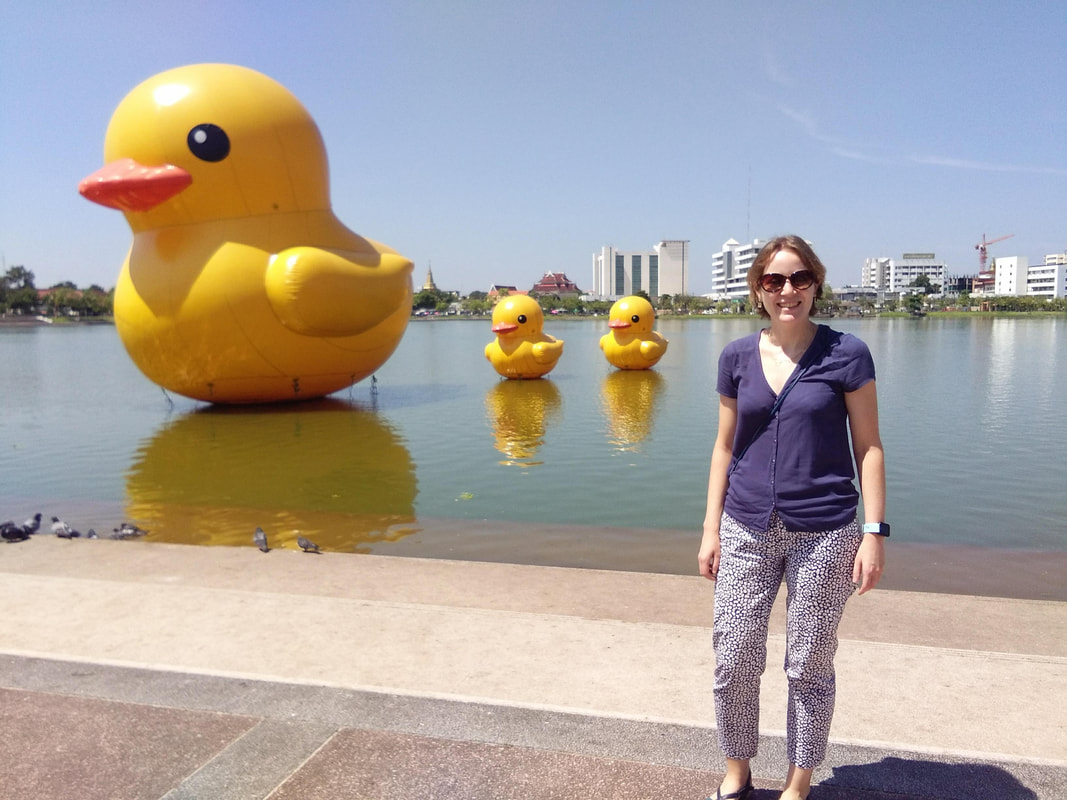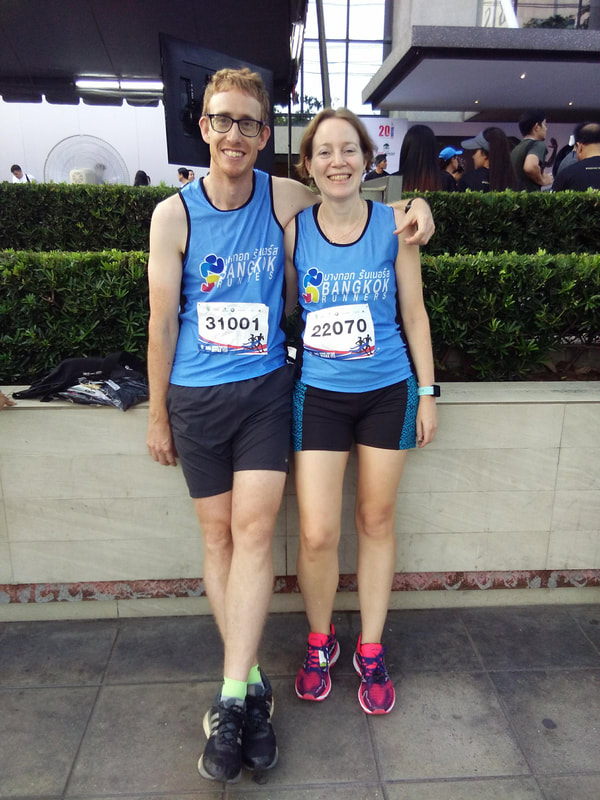By Ruth Gerson
We live in strange times with many issues confronting us and forcing everybody to take a closer look at the world we inhabit. A new social awareness has arisen, especially with regard to the environment, what has happened to it and what we can do about it.
Diane Archer is a young French-Australian woman, born in Thailand, with a PhD in Land Economy from Cambridge University in the UK. She explains that this degree is a multi-disciplinary subject dealing with human geography, law, economics and the environment.
Diane’s field of expertise is in urban development, and it seems only natural that her PhD thesis concerned issues facing Bangkok, including climate change, unfavorable living conditions and the vast influx of plastic waste invading the land and oceans.
Part of her research focused on the Baan Mankong slum upgrading program led by CODI (Community Organisations Development Institute) under the Ministry of Welfare, which empowers people to improve their living conditions, and helps them get loans for housing and infrastructure.
We live in strange times with many issues confronting us and forcing everybody to take a closer look at the world we inhabit. A new social awareness has arisen, especially with regard to the environment, what has happened to it and what we can do about it.
Diane Archer is a young French-Australian woman, born in Thailand, with a PhD in Land Economy from Cambridge University in the UK. She explains that this degree is a multi-disciplinary subject dealing with human geography, law, economics and the environment.
Diane’s field of expertise is in urban development, and it seems only natural that her PhD thesis concerned issues facing Bangkok, including climate change, unfavorable living conditions and the vast influx of plastic waste invading the land and oceans.
Part of her research focused on the Baan Mankong slum upgrading program led by CODI (Community Organisations Development Institute) under the Ministry of Welfare, which empowers people to improve their living conditions, and helps them get loans for housing and infrastructure.
|
In 2010 after completing her degree, Diane returned to Thailand to continue work with low-income urban communities across Asia. Asked what roused her interest in working on urban poverty, Diane replies: “It came from my Dad as he worked in urban management and development.” Her Australian father has indeed set an example that Diane pursues with passion.
To gain further experience in these timely issues, Diane returned to the UK in 2012 to work at the International Institute for Environment and Development where she remained for six years. She concentrated on climate change resilience and inclusive governance in cities, focusing on Asian cities. er work took Diane on programs such as the Rockefeller Foundation’s urban climate change resilience network. “I applied for the job because I knew that it was relevant to Asian cities,” says Diane, who had always planned to eventually return to this part of the world. In fact, Diane found herself back in Thailand in 2018, together with her British husband whom she had met at Cambridge University. She now works at the Stockholm Environment Institute Asia Centre, a non-profit research and policy institute based out of Chulalongkorn University which focuses on the environment and sustainable development. |
|
One of her current projects is in the northeastern city of Udon Thani, a collaboration with local authorities to enhance urban environmental health and well-being. Diane explains that her work includes identifying what parts of the city are considered relaxing and those which are stressful, and how people use public and green spaces, using the data to identify pathways for more livable and healthy cities.
The city of Udon has a forward-looking municipality that plans to turn it into a ‘green’ city with accessible green spaces and green industries. With a friendly smile Diane outlines the most pressing urban ills, including waste management and recycling. Informal recycling has been going on in Bangkok for decades, and while there have been attempts in the past to get households to separate recyclable materials, more often than not, these are just dumped into the rest of the household refuse. It is not unusual to see rubbish collectors sorting out materials at the back of the garbage truck during their daily collections. Diane is working on a project to better understand the working conditions of informal waste workers, the challenges they face, and opportunities to minimize waste and pollutants leaking into the environment. Informal waste pickers may lack protective gear, and may not be in a good position to negotiate prices for their collected recyclables. The research project will start with the recycling shops and from there trace back to the informal waste workers who supply them. Bangkok, meanwhile, has become more environmentally conscious. There has been a relatively successful drive to abolish the use of plastic bags at all retail places, and there are currently attempts to improve the mechanism of waste collections and management. |
An additional safety issue for urban outdoor workers is air pollution, a topic which Diane is also working on. Many professions such as construction, street sweeping, policemen and more are exposed continuously to the city’s air, which at times is at higher pollution levels than is acceptable for workers’ safety. Other issues addressed by the institute are water management, climate change, and gender issues.
Diane plans to continue pursuing what she has begun, and believes that improvements can come in various forms to the Thai urban community. Her knowledge is evident in her published academic papers that include such issues as collective approaches to slum upgrading, and urban climate change resilience. She sums her work with the following: “Trying to create more inclusive cities – to care for its informal sector, which is its backbone but that has no voice in the city.”
Hopefully, Diane’s hard work and dedication will make a difference in the lives of those who need it most, whether in Bangkok or any other Asian city that she sets her eyes on.
Diane plans to continue pursuing what she has begun, and believes that improvements can come in various forms to the Thai urban community. Her knowledge is evident in her published academic papers that include such issues as collective approaches to slum upgrading, and urban climate change resilience. She sums her work with the following: “Trying to create more inclusive cities – to care for its informal sector, which is its backbone but that has no voice in the city.”
Hopefully, Diane’s hard work and dedication will make a difference in the lives of those who need it most, whether in Bangkok or any other Asian city that she sets her eyes on.





 RSS Feed
RSS Feed
















